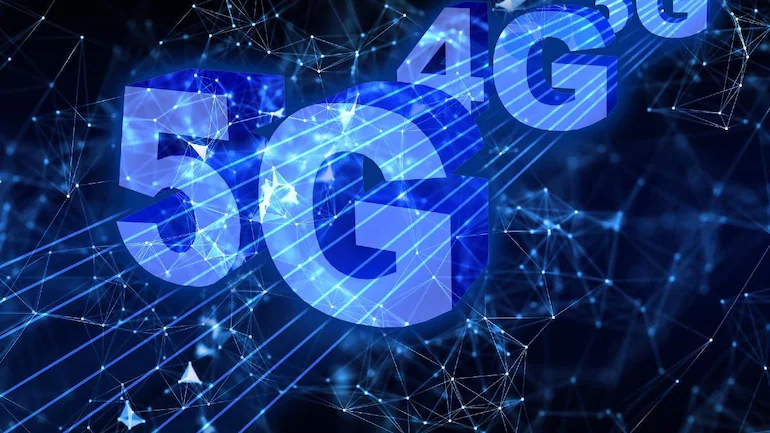The government has issued an invitation to possible bidders for spectrum auctions scheduled for next month, marking the first step toward the country’s deployment of 5G services. The Union Cabinet approved a plan to auction 72,097.85 MHz of airwaves on Tuesday (June 14).

From July 26, a total of 72,097.85 MHz of spectrum with a 20-year validity term will be auctioned. Spectrum in the 600 MHz, 700 MHz, 800 MHz, 900 MHz, 1,800 MHz, 2,100 MHz, 2,300 MHz, 3,300 MHz, and 26 GHz bands will be auctioned off.
“It is predicted that telecom service providers would use the Mid and High band spectrum to bring out 5G technology-based services capable of offering speeds and capacities that are around 10 times better than what is now feasible with 4G services,” according to an official statement.
The entire spectrum is worth more than Rs 5 lakh crore at reserve price. The government issued a telecom industry assistance package last year, and certain aspects of it have been included into the conditions of this auction. For the first time, a requirement that successful bidders make an advance payment has been eliminated.
Spectrum payments can be made in 20 equal yearly instalments, payable in advance at the start of each year. After ten years, the bidders would have the option to surrender the spectrum with no more obligations for balance instalments.
In addition, the government will not collect any spectrum usage charges on airwaves auctioned in this round, and bank guarantees and financial guarantees will no longer be required.
Last month, the Digital Communications Commission (DCC) agreed to the Telecom Regulatory Authority of India’s proposed basic rate for spectrum (TRAI). TRAI suggested lowering spectrum rates for 5G airwaves by 35-40% in April.
The telecom regulatory board specifically recommended that the base pricing for the premier 5G band of 3,300-3,670 MHz be maintained at Rs 317 crore per MHz, which is 35% lower than the base price of Rs 492 crore per MHz announced in 2018.
Similarly, the TRAI-recommended price for 700 MHz is Rs 3,297 crore, which is over 40% less than the costs suggested by the regulator in 2018.
In March of last year, the government sold telecom operators the rights to utilise the airwaves for Rs 77,820.81 crore. The government had put frequencies in the 700, 800, 900, 1,800, 2,100, 2,300, and 2,500 MHz bands on the market at the time.
However, because to the high base price of the 700 MHz band, no offers were received in the 700 MHz and 2,500 MHz bands.
The government has finally agreed to expand the number of microwave backhaul carriers in the existing frequency bands of 13, 15, 18, and 21 GHz after years of deliberation.
The government said in an official statement that it has decided to temporarily award two carriers of 250 MHz each in the E-Band spectrum, as well as to double the number of traditional microwave backhaul carriers in current frequency bands.
There are now 2,090 microwave backhaul carriers available across these frequencies. This was done because high-bandwidth telephone services, such as 5G, require more backhaul capacity to work properly.
The government has also made it easier for IT businesses to obtain spectrum directly from it in order to test and develop industry 4.0 technologies like machine-to-machine communications, the Internet of Things, and artificial intelligence. Companies like Tata Consultancy Services (TCS) have already showed interest in developing such solutions using non-public 5G networks.
The general public will not be able to access these networks. The Department of Transportation stated it will conduct demand assessments and then seek TRAI recommendations for direct spectrum allotment to such businesses.

